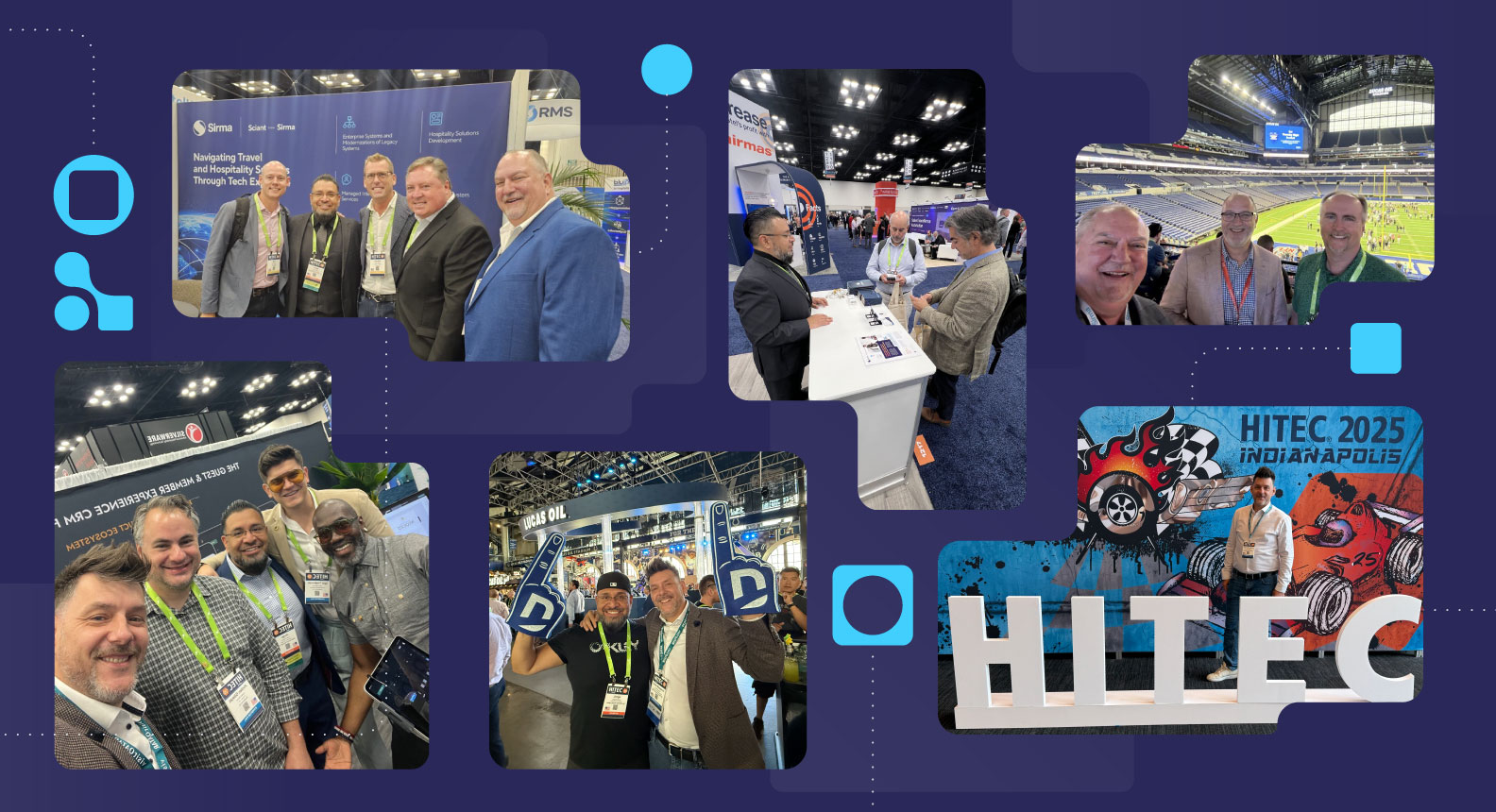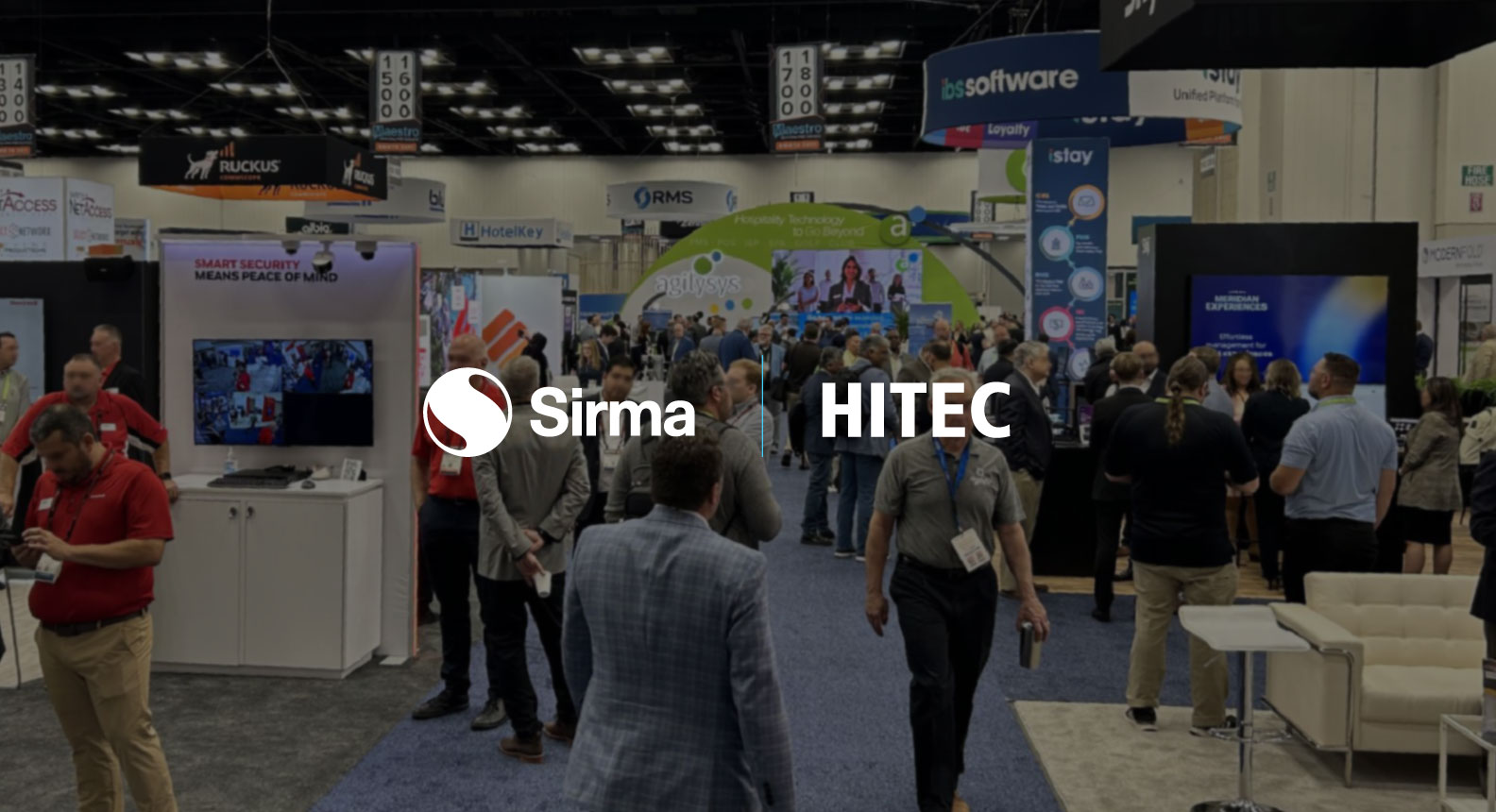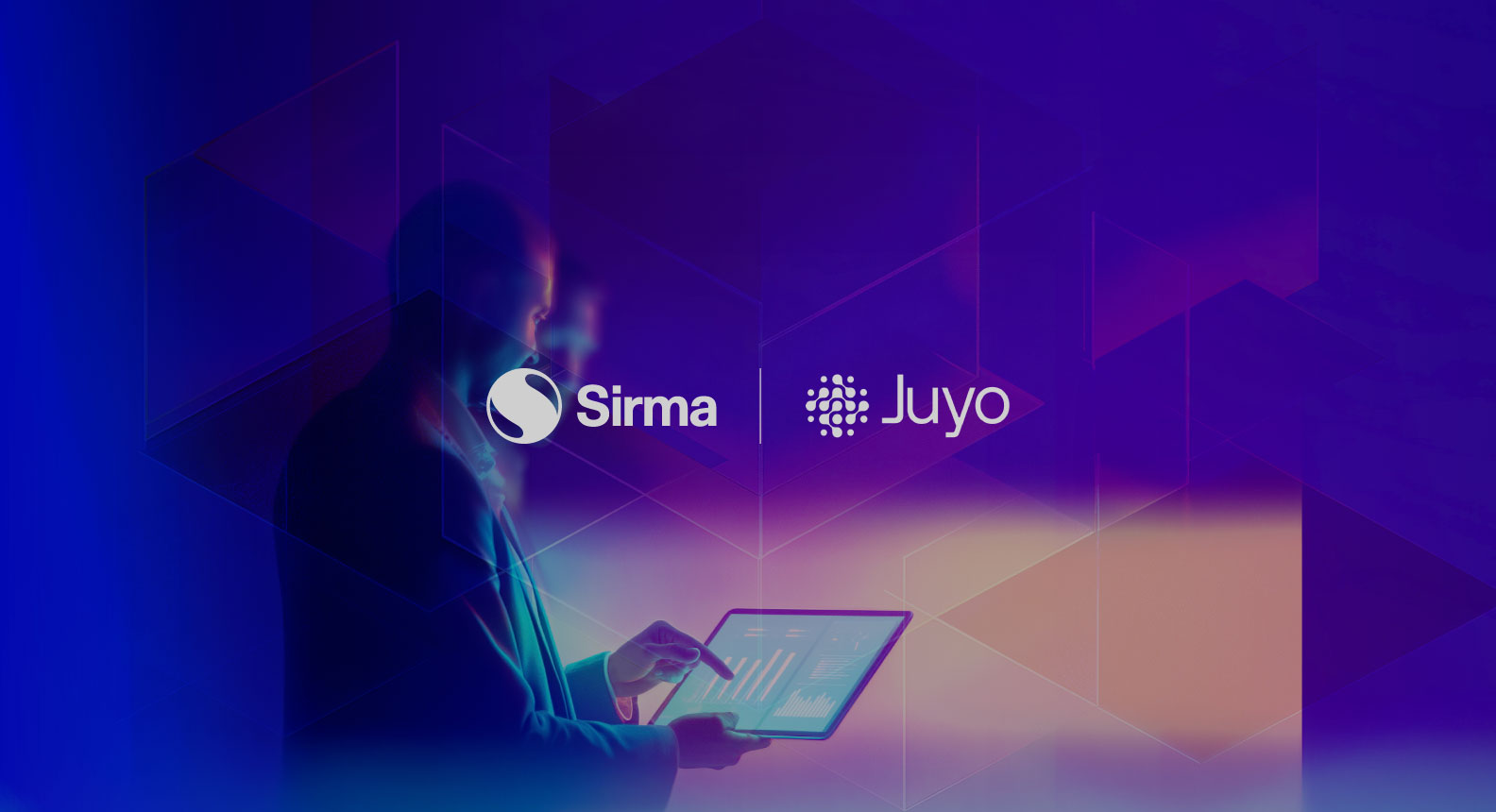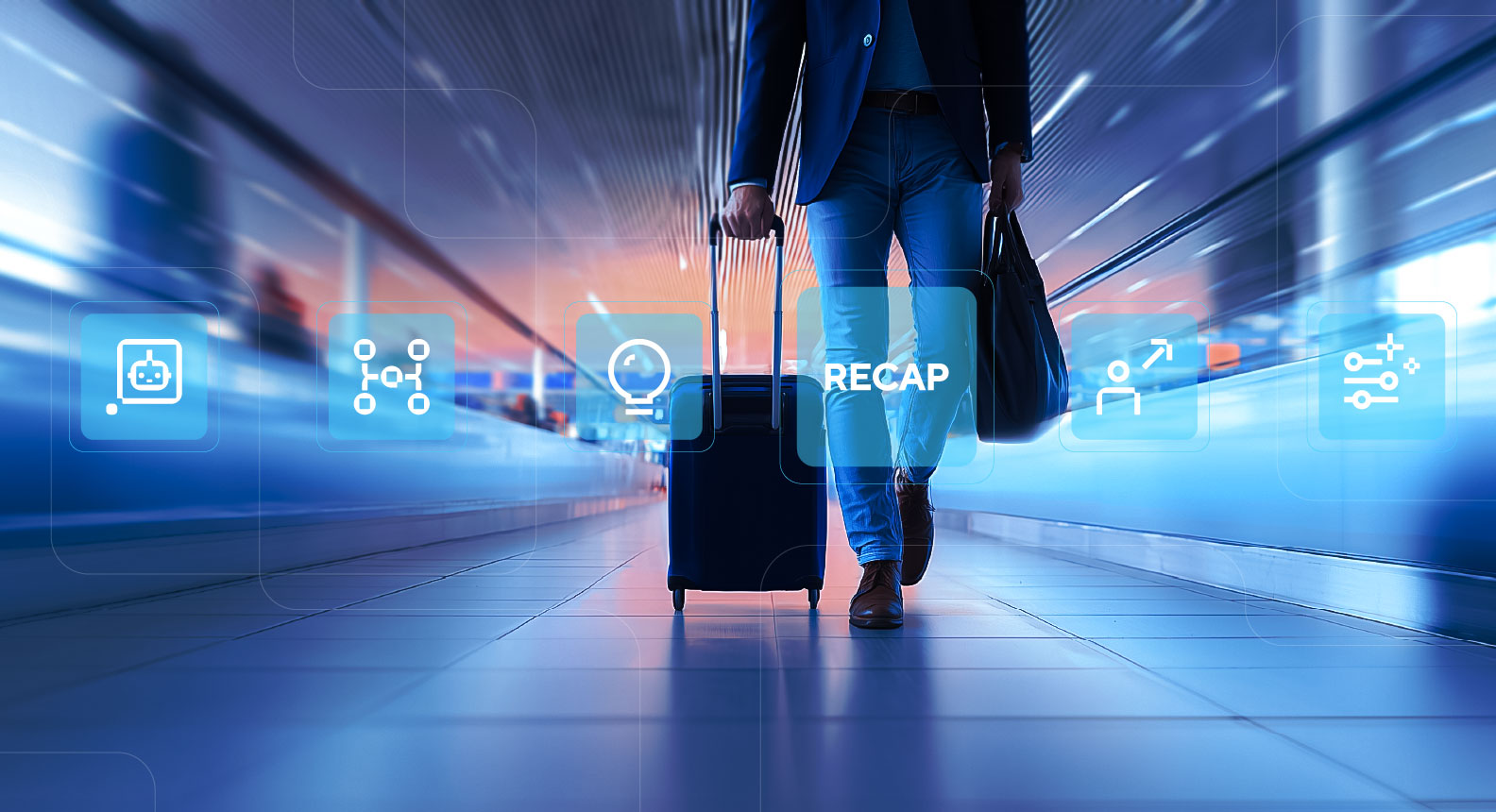From June 16–19, HITEC 2025 — the world’s leading hospitality technology event brought together operators, solution providers, and innovators for four days of insight, collaboration, and future-focused conversations. As the largest event in its category, it remains the focal point for how hospitality evolves in a digital-first world without losing human touch.
At Sirma’s booth, our prominent hospitality experts Darko Bosancic, Rodd Herron, and Jorge Gutierrez connected with operators and tech leaders. But what stood out most wasn’t just the volume of traffic, it was the quality of conversations. The true value lies in the trend-driven discussions, emerging insights, and shared mission to balance technology with humanity.
Hospitality at a Crossroads
As conversations unfolded across the floor and at Sirma’s booth, it became clear that hospitality leaders are at a pivotal moment. While optimism about technology ran high, operators were candid about the realities on the ground:
- Rising labor and supply costs, cutting deep into margins
- Persistent staff shortages, leaving service teams overstretched
- Unpredictable economic and political landscapes, clouding future planning
- Escalating guest expectations, shaped by fast-paced digital experiences
- Sustainability imperatives, demanding both efficiency and eco-conscious practices
Darko Bocancic, shared his thoughts with Hospitality Net as part of their ViewpointOfTheWeek series. He talked about the evolving role of personalization in hospitality, highlighting its necessity and what it takes to create meaningful guest experiences in a digital-first world.
Personalization should serve as a guide rather than a limitation. Travel is all about exploration, and while AI can assist in curating options, it should allow room for travelers to make their own decisions. Although younger generations may appear at ease with algorithms providing ready-made solutions, they, too, appreciate the freedom to modify and tailor their experiences. The crucial element is finding a balance: allow technology to achieve 70 percent accuracy, then enable guests to customize the remaining aspects on their own.
To explore the latest thoughts and trends in hyperpersonalization within the travel and hospitality sectors, you could also read what the other industry leaders, featured in the article, shared.
This recurring theme of “pressure meets possibility” shaped many of the most meaningful conversations. As Rodd shared,
“Once we got talking, people were really engaged.” There was a strong appetite for practical, scalable solutions, particularly those that help modernize operations without disruption, and how the right partnerships can offer the flexibility and support operators need moving forward.
These common pain points became a springboard for action. What followed were conversations focused on real solutions, with five key trends taking center stage.
HITEC 2025 Trends with Real-World Weight
From the talks around AI to the push for smarter infrastructure, the show floor reflected a clear shift: hotel brands aren’t reacting, they’re ready to invest with intention.
1. AI Conversations Were Everywhere, But Direction Is Still Emerging
AI was undoubtedly a hot topic. “Everyone is interested, but there’s still a noticeable lack of clear direction on how to meaningfully implement AI in the high-touch world of hospitality,” Rodd reflects. While enthusiasm is high, hesitation remains, especially around guest personalization and data security in such connected environments. That tension highlights a critical space where vendors and operators must collaborate to define responsible and effective AI rollout strategies.
2. Optimizing Margins Through Smarter Tech
Surfacing repeatedly in booth conversations was the need to counter rising costs with operational AI. “AI-driven solutions can optimize operations, streamline repetitive tasks, and help hotels maintain high service levels despite leaner teams,” Rodd shared. From AI assisting with housekeeping schedules to predictive maintenance, the promise is automation without losing the human touch.
3. Infrastructure Must Become Smarter and More Connected
From Wi-Fi 7 to IoT sensors and cloud-native platforms, the trend was unmistakable: hotels are modernizing their back-end systems. This investment in “frictionless operations” is about reducing complexity and unlocking insights. And not just installing smart devices but creating a truly intelligent ecosystem.
4. Mobile & Contactless Tech Have Become Baseline
Contactless check-ins, mobile room control, and personalized in-app services are no longer novelties, they’re highly sought after. And they’re evolving: expect mobile solutions increasingly integrated with back-office systems to provide seamless guest journeys and operational agility.
5. Sustainability with Substance
Sustainability tech was equally tangible. Energy management platforms, predictive maintenance tools, and procurement analytics were all on display, helping hotels save resources and appeal to environmentally conscious travelers.
HITEC 2025 Key Highlights
Beyond the booth, breakout sessions further echoed what was heard on the floor: real tech challenges met with real solutions.
- “AI Foundations: Making Sense of AI and Developing an AI‑Ready Culture” featured Michael Goldrich, Matt Schwartz, and Ryan Vet. The session underscored practical use over buzz, emphasizing how AI can support operations without overshadowing the guest experience.
- “Building a Hospitality Cybersecurity Culture: From Frontline to C‑Suite” included insights from Ajay Aluri. It stressed the need to elevate cybersecurity awareness across all levels of a hotel, especially as AI and cloud tools are increasingly adopted.
- “Reimagining Hospitality: Transforming Hotels into Sustainable and Vibrant Experience Ecosystems” (Greg Poirier & John Picard) spotlighted the importance of interconnectivity across PMS, POS, CRM systems, and destination partnerships, emphasizing collaboration as the next evolution in hotel tech.
On the Floor at Sirma’s Booth: Meaningful Connections & New Doors

While the trendlines were clear, the human element made them real. Across four days of conversations, operators came with clear priorities: managing rising costs, addressing staffing challenges, and making smarter use of technology without disrupting service quality. These weren’t hypothetical discussions; many were actively exploring AI pilot projects and system modernization strategies.
“There was genuine interest in the work we’re doing, especially around solving operational challenges with scalable, practical tech,” Rodd noted. That level of engagement underscored a broader shift in mindset: brands aren’t just experimenting with tech, they’re actively looking for trusted partners to help them move forward with clarity and confidence.
For Rodd, reconnecting with long-time peers was also a highlight. “It reminded me how valuable these face-to-face events are. Relationships matter in this industry,” he said.
Sirma Hospitality’s Strategic Positioning
“Sirma is uniquely positioned to help hospitality brands deliver on their promises,” Rodd said. With deep industry expertise and flexible, scalable solutions, the team consistently shows up as more than just a vendor, but as a long-term partner focused on operational impact.
Their strength lies in helping operators balance cost, service quality, and guest satisfaction through:
- AI adoption that fits the high-touch nature of hospitality
- Seamless modernization of legacy systems without disruption
- Resilient, future-ready cloud infrastructure
This positioning is already translating into longer-term, multi-year partnerships as brands seek consistency, clarity, and expertise in an evolving market.
The Road Ahead: Proactive Tech Investment Is Key
Rodd summed it up:
AI is the future, even though there’s still a lot of confusion about how to best apply it. There’s a strong desire to modernize and streamline outdated tech stacks, but limited resources and current economic pressures are making it difficult to fully commit.
For forward-thinking hoteliers, the question is no longer whether to invest in tech. It’s about when and how. Hospitality brands that act now, prioritizing carefully chosen tech, skills, and integrations, will reap outsized benefits in staff efficiency, guest loyalty, and operational resilience.
Final Thoughts
HITEC 2025 was an affirmation that operational intelligence, thoughtful AI, and guest-centric solutions define the future of hospitality. Sirma hospitality team is uniquely positioned to help brands navigate this evolution, offering deep domain knowledge and a vision for scalable, grounded transformation.
Tech transformation doesn’t have to be disruptive. Connect with us to discover how we’re helping hospitality brands evolve with clarity and confidence.


